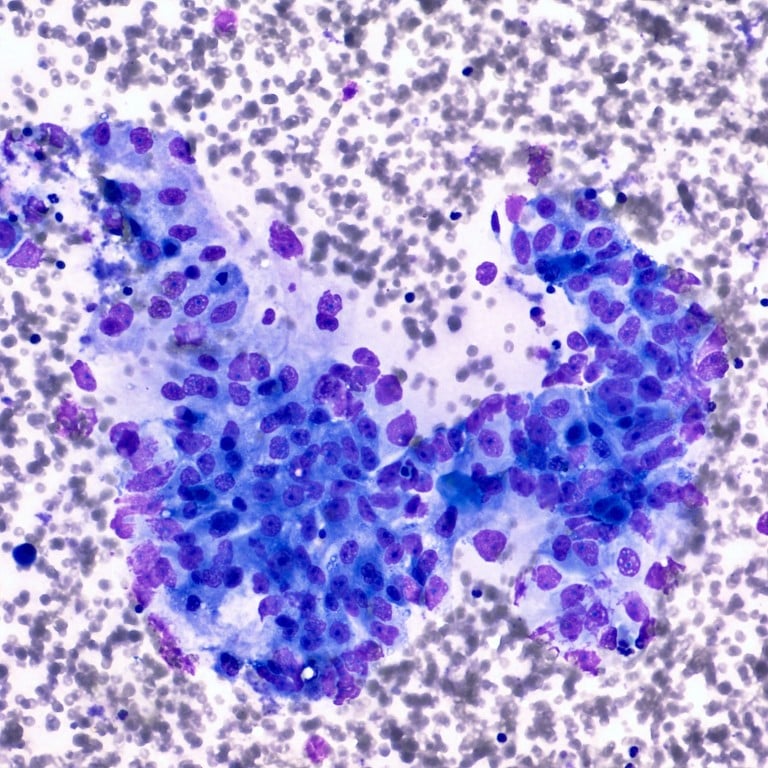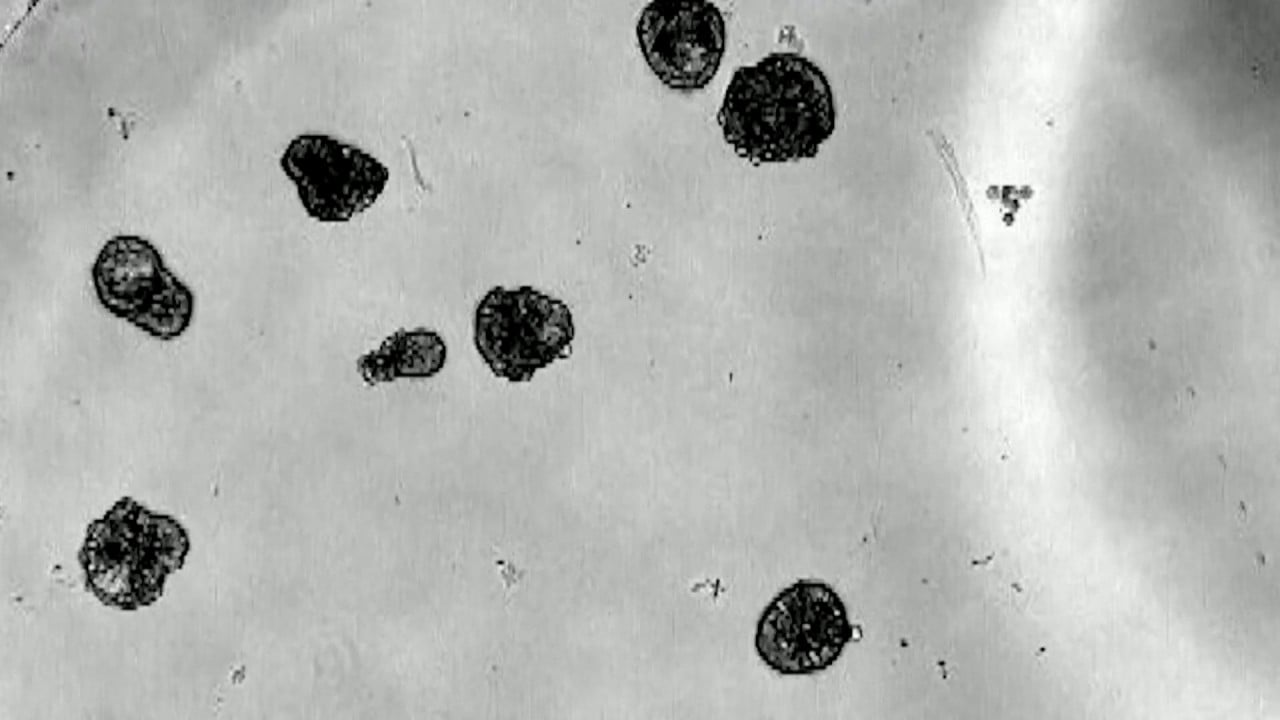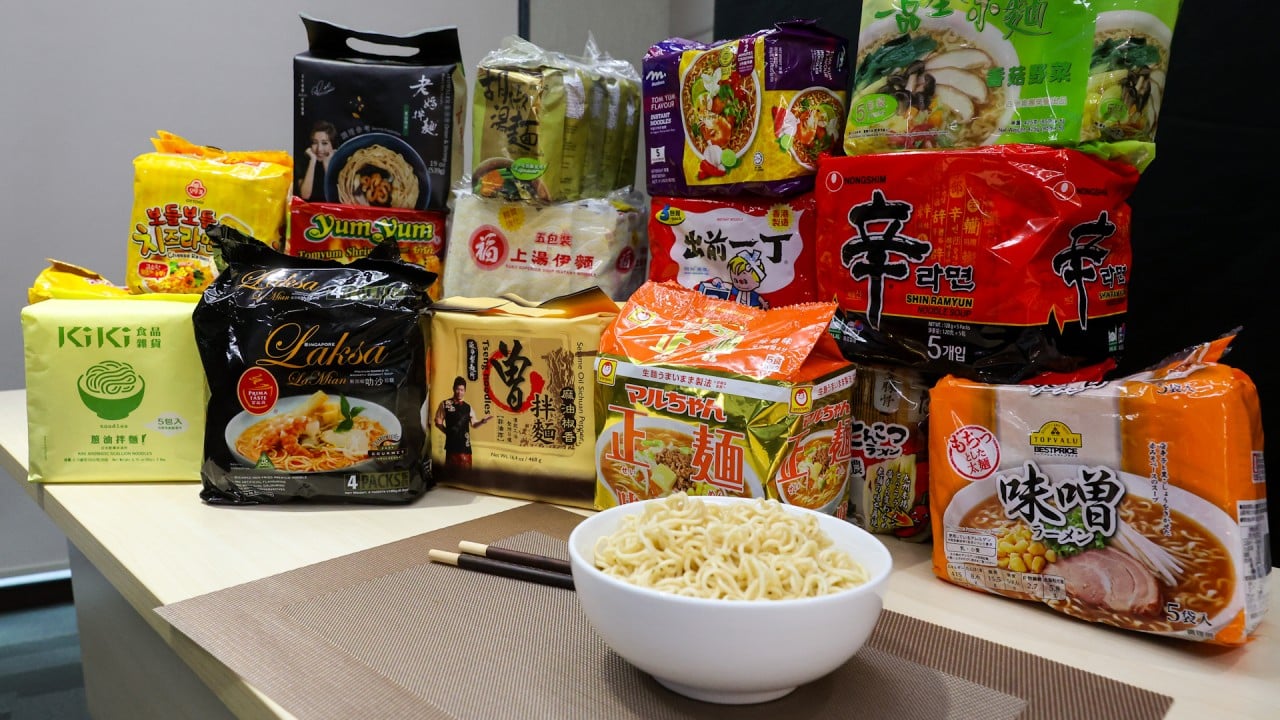
Chinese scientists’ discovery could improve pancreatic cancer patients’ survival rate
- Pancreatic ductal adenocarcinoma causes around 466,000 deaths a year, predicted to become second leading cause of cancer-related deaths by 2030
- Team constructs model for pancreatic cancer prognosis and reports identification of two important protein biomarkers
Pancreatic cancer is rarely diagnosed in its early stages when the chances of being cured are greatest. It has an average five-year survival rate of less than 10 per cent.
A Chinese study enrolled 1,171 patients with pancreatic ductal adenocarcinoma (PDAC) – the most common subtype of pancreatic cancer that accounts for more than 95 per cent of all cases – and provided extensive follow-up.
PDAC causes around 466,000 deaths worldwide each year and is predicted to become the second leading cause of cancer-related deaths by 2030.
The Chinese team sequenced the proteome – the complete set of proteins expressed by an organism – and the transcriptome – which describes the set of mRNA transcripts produced in a given cell or tissue type – of 191 patients with more than three years of follow-up. This allowed them to successfully construct a model for pancreatic cancer prognosis and they then reported the identification of two important protein biomarkers: NDUFB8 and CEMIP2.
The study was co-led by scientists and doctors from institutions including Ruijin Hospital, part of the Shanghai Jiao Tong University School of Medicine, and Changhai Hospital in Shanghai.
It was initially published online in the peer-reviewed journal Nature Medicine on January 29, but was formally published as a cover article in the latest issue on March 19.
China to trial ‘superior’ pancreatic cancer drug with fewer side effects
To confirm the validity of these biomarkers, the team further tested their findings in medical centres in France and China involving three separate groups of patients, with more than 200 participants in each. The process “enhanced the robustness and [generalisation] of our findings”, the authors said.
The study is believed to be the first proteomics-driven “exploration of biomarkers associated with PDAC treatment”, Fan Jia, a senior doctor at Zhongshan Hospital, affiliated with Shanghai’s Fudan University, said in a commentary posted on the Chinese social media account “BioArt” in late January.
The findings “mark a new era in the precision diagnosis and treatment of pancreatic cancer,” Fan, who was not involved in the research, said.
In the same article, two other specialists in the field, Li Min and Liu Mingyang, noted that about 60 per cent of pancreatic cancer patients had metastatic disease at the time of initial diagnosis and 30 per cent were in a locally advanced stage.
“This has deprived them of the chance of cure through surgery and left them with the suboptimal option of chemotherapy-based comprehensive treatment,” they said.
Li is a researcher at the University of Oklahoma College of Medicine and president of the American Pancreatic Association, and Liu is from the Cancer Hospital of the Chinese Academy of Medical Sciences.
In recent years it has become clear that pancreatic cancer is a highly heterogeneous tumour, meaning it can appear differently from patient to patient.
“How to accurately predict the efficacy of chemotherapy and optimise the treatment portfolio for patients is the focus and pain point of current pancreatic cancer research,” they said.



